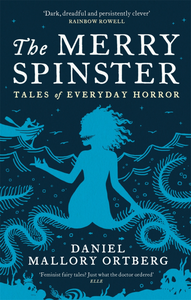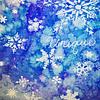You need to sign in or sign up before continuing.
Take a photo of a barcode or cover
Reminiscent of Her Body and Other Parties, but much more rooted in deconstructing and conceptually taffy-pulling fairy tales (also a deeply fucked-up version of Frog and Toad). Ortberg is always verbose and self-aware, but the deadpan voice these stories are told in allows the archetypes to breathe and reveal how dangerous the uncanny leaps they make can be, were the stories spooled out into the real world.
I enjoyed this but didn't adore it like I expected to. It's funny, but the stories which had previous versions on The Toast were IMHO not as good as their previous versions - I'm thinking especially of the Beauty and the Beast retelling.
Creepy creepy creepy short stories based on fairy tales and other children’s classics. These will stick with me for awhile.
The construct is clever and I found the first few stories interesting, but starting with The Rabbit it all went downhill. In the end I was forcing myself to finish it. The idea of unique twists on old tales has so much potential, but Ms. Ortberg fails to capitalize on that potential. Some of the stories seemed disturbing just for the sake of being disturbing, but without actually being entertaining.
more like 3.5...Loved some and loved some not so much.
The Merry Spinster by Daniel Mallory Ortberg is a collection of retold fairy-tales with a horror spin, each more unsettling and bloody than the last. With a strong grasp of fairy-tale storytelling and a snappy writing style, Ortberg gives the reader bite-sized horror stories that are easily read in one sitting each. With 11 total stories in this collection, there's a variety of settings and topics to chose from, and for the sake of this review I'll be talking about my favorite stories individually. There's no real common theme here or connecting piece, outside of being "creepy fairy-tales," so there's no need to discuss them as a whole.
"The Daughter Cells" is the first story in The Merry Spinster, and it is a pretty standard "Little Mermaid but way darker" retelling. Ortberg does an excellent job obscuring the details just enough to make the reader uneasy; there's a particular moment where they describe the mermaid's sense of movement and limbs that adds some extra creepiness not otherwise found in your average retelling.
"Six Boys' Coffins" is a tale I'm not familiar with, but loved none the less. It follows the construction of a traditional fairy-tale exceptionally well, with it's prophetic dreams and arduous tasks for the heroine, but with a considerably darker twist. I liked this about it; it really highlights how truly shitty a lot of the fairy tale stories are.
"The Wedding Party" had this surreal horror to it, where you're left wondering what sort of place the groom has ended up in, and although it was a story with an unclear conclusion, I did like it. It almost gives me a Silent Hill vibe.
While these might be my highlights in terms of individual story, there's a lot here that's just great. Ortberg does some clever things with gender and pronouns that I just really loved - primarily that son/daughter/wife/husband are roles and can by played by anyone of any gender, based on need or circumstance. Each story is suitably eerie in at least some way, and while it's certainly not a favorite, I liked it well enough.
I recommend this book to anyone who likes creepy fairy-tale retellings, unique takes on gender and gender roles, and witty writing.
"The Daughter Cells" is the first story in The Merry Spinster, and it is a pretty standard "Little Mermaid but way darker" retelling. Ortberg does an excellent job obscuring the details just enough to make the reader uneasy; there's a particular moment where they describe the mermaid's sense of movement and limbs that adds some extra creepiness not otherwise found in your average retelling.
"Six Boys' Coffins" is a tale I'm not familiar with, but loved none the less. It follows the construction of a traditional fairy-tale exceptionally well, with it's prophetic dreams and arduous tasks for the heroine, but with a considerably darker twist. I liked this about it; it really highlights how truly shitty a lot of the fairy tale stories are.
"The Wedding Party" had this surreal horror to it, where you're left wondering what sort of place the groom has ended up in, and although it was a story with an unclear conclusion, I did like it. It almost gives me a Silent Hill vibe.
While these might be my highlights in terms of individual story, there's a lot here that's just great. Ortberg does some clever things with gender and pronouns that I just really loved - primarily that son/daughter/wife/husband are roles and can by played by anyone of any gender, based on need or circumstance. Each story is suitably eerie in at least some way, and while it's certainly not a favorite, I liked it well enough.
I recommend this book to anyone who likes creepy fairy-tale retellings, unique takes on gender and gender roles, and witty writing.
Weird stories. I didn't really like them. Some were clever though.
there is a pervasive sense of suspense in all of these stories. in some of them it pays off delightfully.
It’s a sign of Ortberg’s art that even when I did not know the original story he was riffing on, I could tell it was bending in a sinister direction. I’m in the middle of his equally strange memoir, and anyone who can make Pilgrim’s Progress and Paul on the road to Damascus into metaphors for realizing he’s transgender has a way of looking at reality that’s a revelation to me.
Completely bizarre and spooky. Some are obvious which fairy tales they stem from and some really are not.





